The discovery of alleged “alien mummies” has taken another intriguing turn. Researchers recently uncovered two more mysterious figures, deepening the debate surrounding their origins
The discovery of so-called “alien mummies,” also referred to as “non-human alien corpses,” has taken a mysterious turn.
Researchers have uncovered two additional figures, adding to the ongoing debate about their origins.
The Nazca mummies: A mystery that divides opinion
In 2017, strange humanoid figures were discovered in Peru’s Nazca Desert. These figures, nicknamed the “Nazca mummies”” have sparked widespread speculation.
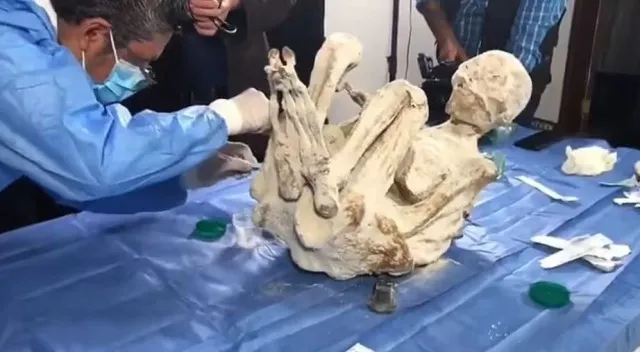
One of the original mummies, named María, underwent fingertip analysis, which suggested they were not human. This finding fueled claims by ufologists that these beings might have been hidden for over a millennium.
However, many scientists and officials maintain these figures are merely human mummies.
Despite their assertions, the alien-like appearance of these figures continues to intrigue conspiracy theorists.
Jois Mantilla, who has been working with the team studying the mummies, believes they may be thousands of years old and could have once walked the Earth.
New fingures discovered: Paloma and antonio
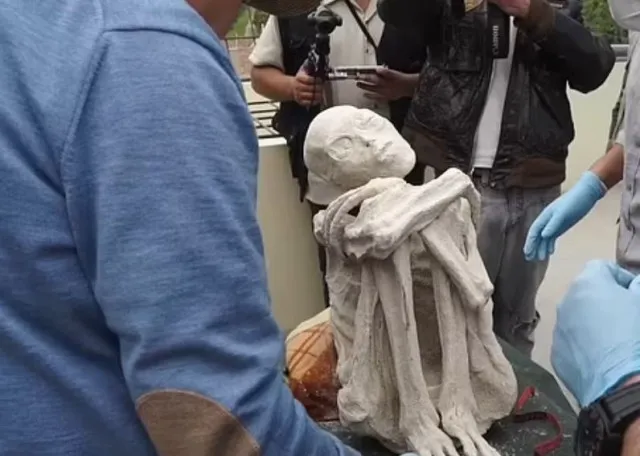
Two new figures, named Paloma and Antonio, were recently uncovered. These mummies share some similarities with María but also exhibit distinct features.
Paloma is the first mummy to have hair, which is described as copper-colored.
Antonio, meanwhile, has a stab wound that reveals a violent injury. Both figures are said to be about the size of a short adult and have three fingers on each hand.
Dr. David Ruiz Vela, the former president of Peru’s Medical Association, analyzed these new mummies. He confirmed that the figures have human-like organs and brain structures.
Dr. Vela provided insight into Antonio’s injury:
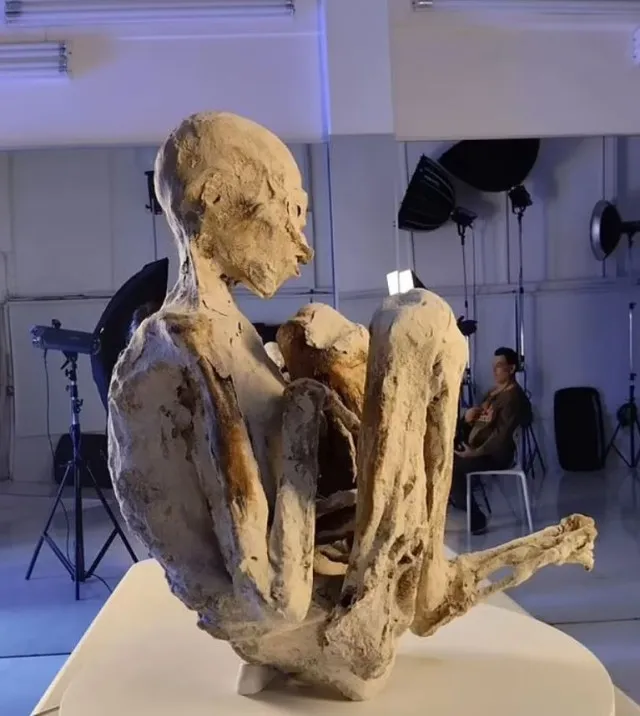
“He has a stab wound that broke ribs on the left side, penetrating the chest and abdomen. It perforated his liver and other internal organs.”
He added: “This is the first time we’ve found a dried body with hair, hair with copper-coloured characteristics,” claiming that the being lived for 60 years.
Researchers suggest these mummies were preserved through a combination of fossilization by algae and a highly toxic adhesive.
The adhesive material reportedly does not match substances typically found during the time period, further deepening the mystery.
The mummies are estimated to be 1,500 years old.
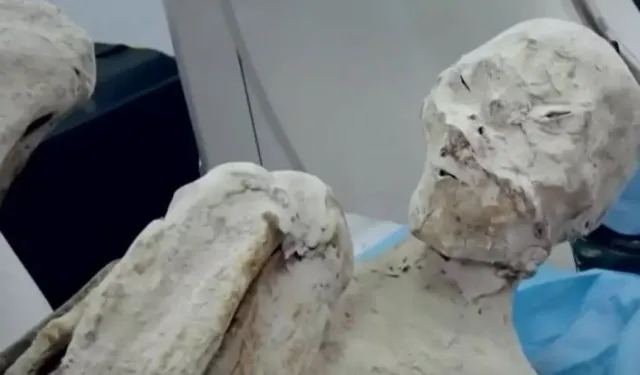
Their preservation techniques, along with their unusual features, continue to raise questions among experts and enthusiasts alike.
María’s connection to the Nazca civilization
María, one of the first mummies analyzed, showed similarities to humans but retained anatomical differences. Radiocarbon dating places her existence between 240 AD and 383 AD, aligning her with the ancient Nazca civilization.
When examined under magnification, María was found to lack hair or ears. Instead, she only had ear canals, adding another layer of intrigue to her discovery.
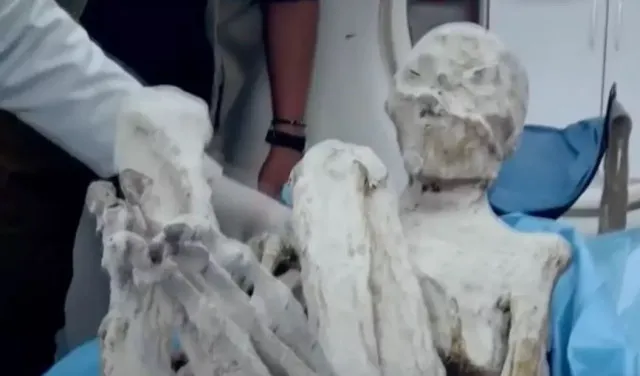
For now, the origins of the Nazca mummies remain a topic of heated debate. Ufologists believe these beings may provide evidence of extraterrestrial life. Scientists, however, continue to argue that they are unique but human remains.
The discovery of Paloma and Antonio adds more complexity to the case of the Nazca mummies. Are these figures evidence of a lost civilization’s unique preservation techniques or something more extraordinary?
As researchers and enthusiasts alike continue to study these figures, the mystery of the Nazca mummies shows no signs of being solved soon.